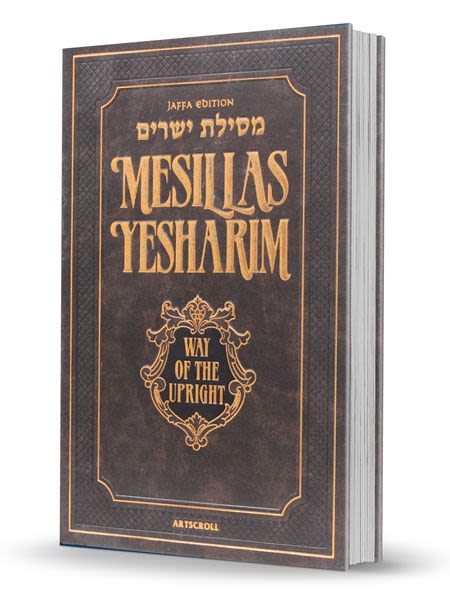
The Revelation
Reb David of Mikolayov discovers that the Baal Shem Tov is a true and magnificent tzaddik and shares the secret with the people of Kitov…

The Baal Shem Tov – Early Years, Part 18
In the last episode, the Baal Shem Tov began to reveal himself through a miracle demonstrated before the Tzaddik, Reb David of Mikolayov. We left off when Reb David saw a fire on Shabbos night in the inn. He started to yell fire, fire!
And then Reb David saw the Baal Shem sitting there. Why are you shouting?" the latter asked. "What have you seen?"
"There, on the stove – don't you see it? – a bright light, some kind of blazing fire…”
"Hush, You'll wake the children," said the Baal Shem Tov. "Be still, and have no fear. It is nothing. I am merely sitting here, saying the Psalms from the Book of  T'hillim. Perhaps you saw the light of the T'hillim that surrounds me."
T'hillim. Perhaps you saw the light of the T'hillim that surrounds me."
 T'hillim. Perhaps you saw the light of the T'hillim that surrounds me."
T'hillim. Perhaps you saw the light of the T'hillim that surrounds me." Now Reb David understood. If this man could make such a flaming light appear by saying the words of the Book of T'hillim, he must be a holy man who kept his holiness hidden from everyone's eyes and, unknown to the world, worshipped the Almighty on a very high level. In short, the man was a hidden tzaddik.
"Why have you concealed yourself from me?" asked Reb David. "Why didn't you let me know what sort of person you really are? I demand that you reveal the truth to me."
The Baal Shem Tov made no further attempt to hide anything from Reb David and he told him about his life. When morning came, they began the morning prayers of shacharit together. The Baal Shem Tov chanted everything in his usual way, with his great enthusiasm and devotion.
At the Sabbath meal, after the prayers, he asked his guest again to relate some interesting thought from the Torah. This time Reb David made no attempt to be simple, but spoke on the meanings of certain sentences in the Torah: both the plain meaning and the hidden, mystical meaning.
Then the Baal Shem began relating thoughts of his that he derived from the Torah. No human ear had ever heard such wondrous thoughts before. They were as sweet to hear as the words of the Torah spoken at Mount Sinai.
When he was done, he begged his guest not to tell anyone a thing of what he had learned about him. Especially should he not say a word to the Baal Shem Tov's brother-in-law, Reb Gershon of Kitov.
The same thing happened at the third Sabbath meal, as dusk was falling, and the same thing again at Malave Malka, the festive meal on Saturday night to mark the departure of the Sabbath.
Reb David decided, however, that this hidden tzaddik must become known to his people. For then he could do so much more good.
Sunday morning, losing no time, he rode to the holy community of Kitov and told the Jews of the town about the Baal Shem Tov. As he described him, the people became convinced that they must bring this holy man to their town and have him live among them. So they decided to ride to the village where he lived in their wagons, in a procession of honor, to ask this hidden tzaddik to make his home in their town.
Meanwhile, the two young sons of the Rabbi of Yoslovitz, Yitzchak Dov and Meir, were filled with longing again to be with their beloved teacher, to hear his sweet fervent prayer in the woods. They pleaded with their father so strongly that he should let them travel and visit the Baal Shem Tov for a few days that at last he gave them permission.
By Tuesday they arrived at his home, and went at once to find the place in the woods where he spent the days of the week in solitude.
When they entered his cave, he embraced them affectionately, delighted to see them once more. Soon it was time for minchah, and he went with them to say the afternoon prayers among the trees of the forest. As they were about to begin, however, they heard a great tumult, for Reb David had arrived at the inn, leading the procession of wagons In which the people of Kitov came riding.
Not finding the Baal Shem Tov at home, Reb David went searching for him in the woods, and soon he caught sight of him among the trees. "Here he is!" he shouted. "I've found him!"
The Jews of Kitov left their wagons and came to join Reb David. When they saw the Baal ShemTov, they gave him a friendly greeting, and he welcomed them all.
Reb David stepped forward and told him of the strong wish of these good people that he should come to live in their town and be their rabbi.
Saying not a word, as he stood there the Baal Shem Tov closed his eyes and concentrated, as if trying to hear something. Then he opened his eyes, as he heard a proclamation from above, informing him that the verdict in heaven was to consent to this. Whether the Almighty, his Father in heaven, would be pleased if he became the rabbi in the town of Kitov…
When the Baal Shem announced that he agreed, Reb David was overjoyed. "Come," he shouted to the people, "we must make a seat of honor for this man of holiness."
The Jews of Kitov became busy cutting branches from the trees of the forest; and out of these branches they skillfully made a kind of seat. On this Reb David and the leaders of the Jewish community made the Baal Shem Tov sit, and they asked him to speak about the Torah. They grew silent to listen, and he spoke.
"Such a talk," he said, "should begin by paying honor to those who give hospitality to the Torah. It is good to learn Torah and study its ideas, for according to a man's ideas and thoughts, especially if they holy and pure, worlds of spirit are created.
"For this reason, if a person learns from his friend or neighbor one chapter of Torah, one law, one sentence, one phrase, or even one letter, he must treat him with honor. For what he has learned adds something to the holy ideas and thoughts in his mind.
"Now, when a person learns Torah from a good, suitable rabbi, that Torah increases and grows in his mind. Thus Rav Saadya Gaon explained that the entire Torah is contained in the words of the Ten Commandments.
"The one absolutely perfect rabbi and teacher is of course the Almighty Himself; and when the Hebrew people heard His Ten Commandments at Mount Sinai, they were able to understand the entire Torah.
"Yet now, since the whole of the Torah comes from the Almighty, all of it is included in any single sentence or phrase. So whatever a person learns of the Torah from a proper, worthy rabbi whose spirit is rooted in the unified world of heaven – that can lead him to understand the entire Torah. And thus all the rabbi's pupils can become tzaddikim, holy men. And so, in time, the Jewish people can all be tzaddikim.
"So let us speak in honor of the hospitality given to Torah. For the hospitality you are giving me, and the Torah I hope to teach, may all of you merit to become tzaddikim.
"Now, as I said, when one person learns from another even one letter of the Torah, he must treat this teacher with honor. For through the letters of the Torah and of our prayers, we can cling to Him (blessed is He).
"A person should fasten his inner mind, his inner thought, to the inner holy light that lies within the letters. When he spends a long time over one word, it is a sign that his inner mind, clinging to the letters, is reluctant to be separated from that word. And this has a profound effect in Heaven.
"If there are wicked persons in the city or the country who act with falsehood, and there is a tzaddik among them who acts with truth in his prayer and his study of Torah, then all those who are responsible for wrongdoing and deceit are scattered far and wide. The presence of the Tzaddik causes the Almighty's presence to come into this region – even into a place of bands of wild animals and outlaws.
"In every person there are also sparks of holiness from the "Shechinah," from the Divine Presence. And these sparks move him to seek holiness. But if he finds that for him the heavens are locked, let him go to the devout, religious man of his generation, and he will pray for him.
"The Talmud tells that the daughter of a great sage and scholar had no oil for her Sabbath lamps (in those times they lit small oil lamps instead of Sabbath candles). She had only vinegar; and her father told her to put vinegar in the lamps, because 'the One who told oil to burn can tell vinegar to burn,' and her lamps gave a good light for the Sabbath.
"If all the people in the world lived with "chasidut," with holiness and kindness, it would not be considered a miracle for a person to tell vinegar to burn, because it would burn for many people. It is only because the people of the world do as they please, obeying their hearts blindly, that they cannot do this. One man alone in his generation has the ability, because his prayer is answered; and it is a great wonder in people's eyes.
"Now, the main task in learning Torah is to cling to its inner light and spiritual meaning. That is an infinite, boundless light within the letters of the Torah. And this is called "learning Torah for its own sake." Remember what Rabbi Meir said: 'Whoever spends his time learning Torah for its own sake merits to attain many things, and mysteries of the Torah are revealed to him.' This means that he will know the future and all impending events, from the Torah.
"Let me end with a parable, a story to illustrate this point. A certain king proclaimed on a day of his great happiness and celebration: 'Whoever wants anything of the king, let him come and ask, and his wish will be granted him.' Some came and asked for power and authority. Some asked for wealth; and some asked for honor. There was one wise man there, however; and he came and said he wanted nothing whatever, except for one small thing: that he should be allowed to come and see the king on any day, at any time that he wished; and then the king should agree to what he asked. This wish was granted him. So he became a frequent, regular visitor to the palace, and he was able to get everything he wished.
"When we pray to the Almighty, we are like the people in the land of that king. We have the right and the ability to come before the supreme King, the Divine Ruler of the universe, to ask of Him any one thing that we wish. If we are wise, we will ask Him to let us always come to him with our needs. Then we will be like privileged members of His household, and we need not ever lack for anything.
To be continued next week, G-d willing…
***
Tzvi Meir Cohn attended Yeshiva Hadar Hatorah in Crown Heights, Brooklyn after completing his university studies in Engineering and Law. While studying at the Yeshiva, he discovered a deep connection to the stories and teachings of the Baal Shem Tov. His many books about the Baal Shem Tov can be found in the Breslev Store. He can be contacted at howard@cohnpatents.com.










